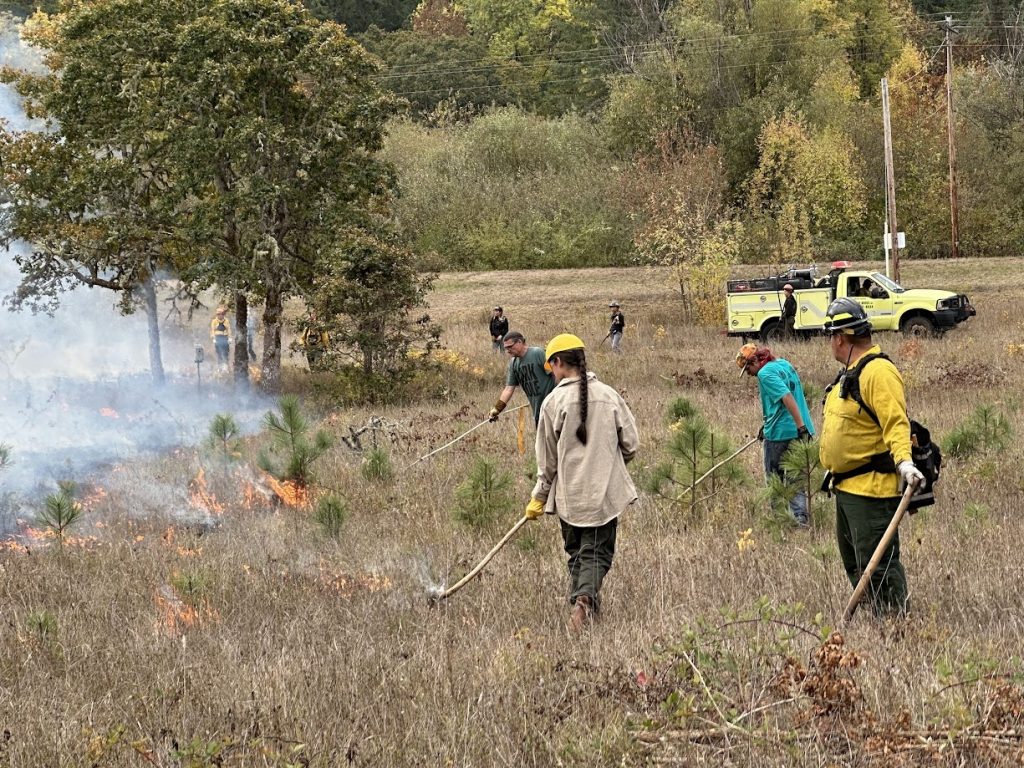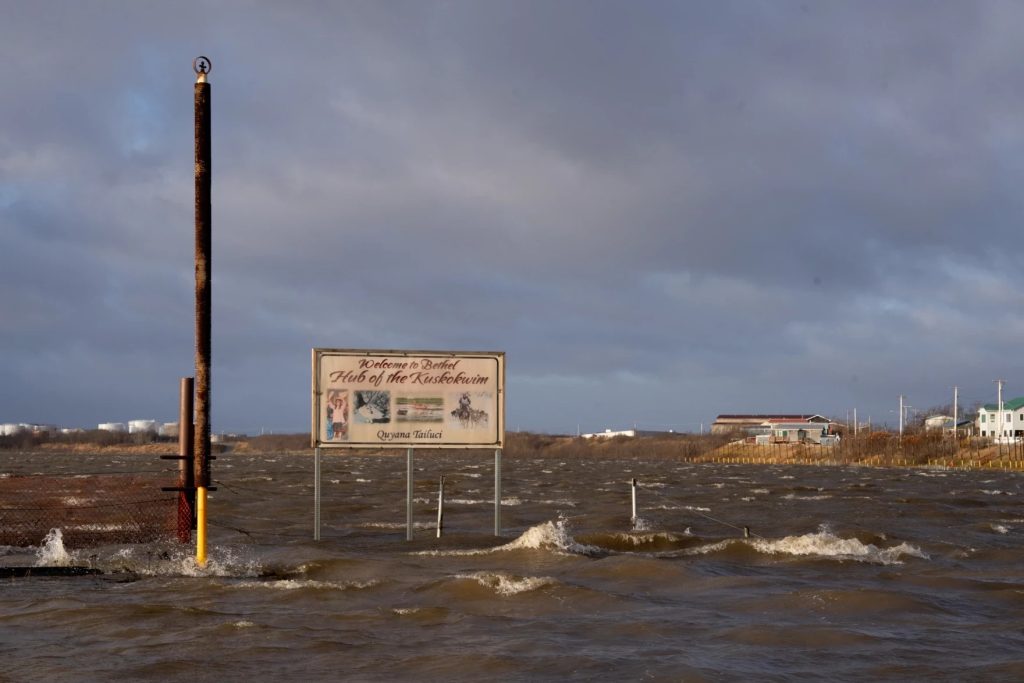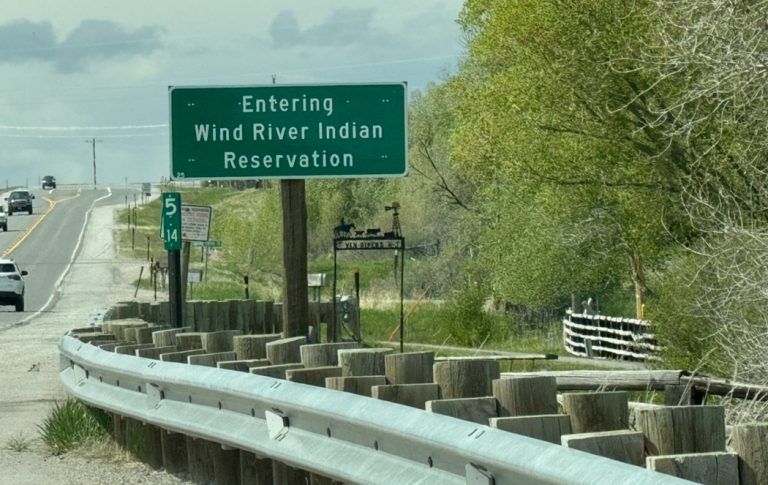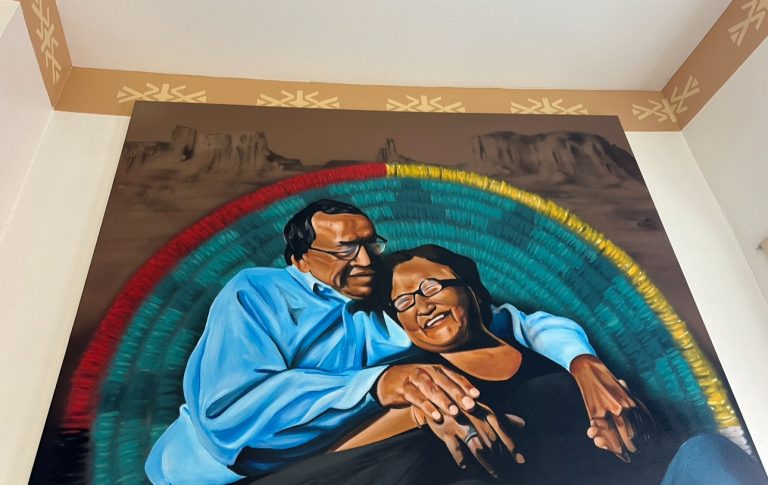Podcast: Play in new window | Download | Embed
Thousands of Indigenous people across the Mountain West are among those who will lose Supplemental Nutrition Assistance Program (SNAP) food benefits if the government shutdown continues.
The Mountain West News Bureau’s Daniel Spaulding reports, that tribal officials are concerned about cuts to programs that were already stretched thin.
SNAP will run out of money on November 1 if the shutdown continues and nearly one-in-four Indigenous households use SNAP benefits, double the national rate.
Julie Keller leads food services at Nimiipuu Health on the Nez Perce Reservation in Idaho.
“Feeding families is very expensive, and people are struggling to make ends meet, and these programs help people provide basic nutrition for their whole family.”
Keller says more tribal members have been signing up to receive food benefits out of fear that they may soon be canceled.
Five states in the Mountain West have issued warnings for SNAP recipients.
Some states, like Colorado, are providing emergency funding for alternate food sources.
Meanwhile, a group of Democratic leaders in several states are suing the federal government over the suspension of benefits.

(Courtesy Cherokee Nation)
The Cherokee Nation declared a food emergency Tuesday due to the federal government shutdown and the expected loss of SNAP benefits.
The Oklahoma tribe is making more than $6 million in emergency relief funding available.
Cherokee Nation Principal Chief Chuck Hoskin, Jr. explained the tribe’s response in a social media post saying they’ll protect those most at risk of hunger.
“We will not turn our backs on people in need as the federal government remains gridlocked. Our response may not be perfect but we will not stand back and watch people suffer.”
Other tribes across the country have also declared an emergency due to the federal government shutdown.

Egan Convention Center in Anchorage, Alaska. (Photo: Craig Talbert / Wikimedia)
The Western Alaska disaster relief effort has moved to its next phase.
Earlier this month, hurricane-force winds and floods forced more than 1,000 people from their homes.
Many families were sent to mass shelters in Anchorage.
This week, the city has begun to transition them into temporary housing.
KNBA’s Rhonda McBride visited the Egan Convention Center downtown, where families are preparing to move on.
Tessie Chanerak is one of the counselors from Southcentral Foundation watching out for families at the Egan Center.
“Little boys and girls are sad. They’re homesick.”
She says counselors have been keeping kids occupied with games — and it’s helped that Halloween is around the corner.
“You know Halloween is one of the fun seasons of the year, because there’s lots of candy, so we got some costumes and lots of hats and trick-or-treating bags. So, anything for the little kids too. They seem to be more at home than their parents.”
Chanerak says at first, when the families moved into the shelter, the reality of what they had escaped had not yet sunk in.
She saw families look at videos and photos, captured on their cell phones, over and over, as if to try to understand what they had experienced.
“I can believe the typhoon kicked in. I can’t believe our homes floated away. That really happened. And yesterday, when I was checking in with folks they were, they’re crying. Their frustrated. They’re tired.”
Despite that, Chanerak says the families have held up remarkably well, but she’s glad they’ll soon be transferred to temporary housing, so can begin to recover. She says she’s grateful for the elders, because they have been a calming influence on everyone.
“I really do admire that. That gives me a tool that I can use. Taking it one day at a time.”
Chanerak wears a pair of angel wings that came from a Halloween costume, known to the kids as “Terrific Tessie.”
She is originally from Toksook Bay, one of the communities also in the storm’s path. She says she feels honored to be of help, as both a counselor and a speaker of the Yup’ik language.
Get National Native News delivered to your inbox daily. Sign up for our daily newsletter today.
Check out the latest episode of Native America Calling
Wednesday, October 29, 2025 – The Menu: SNAP runs out, Alaska traditional relief foods























